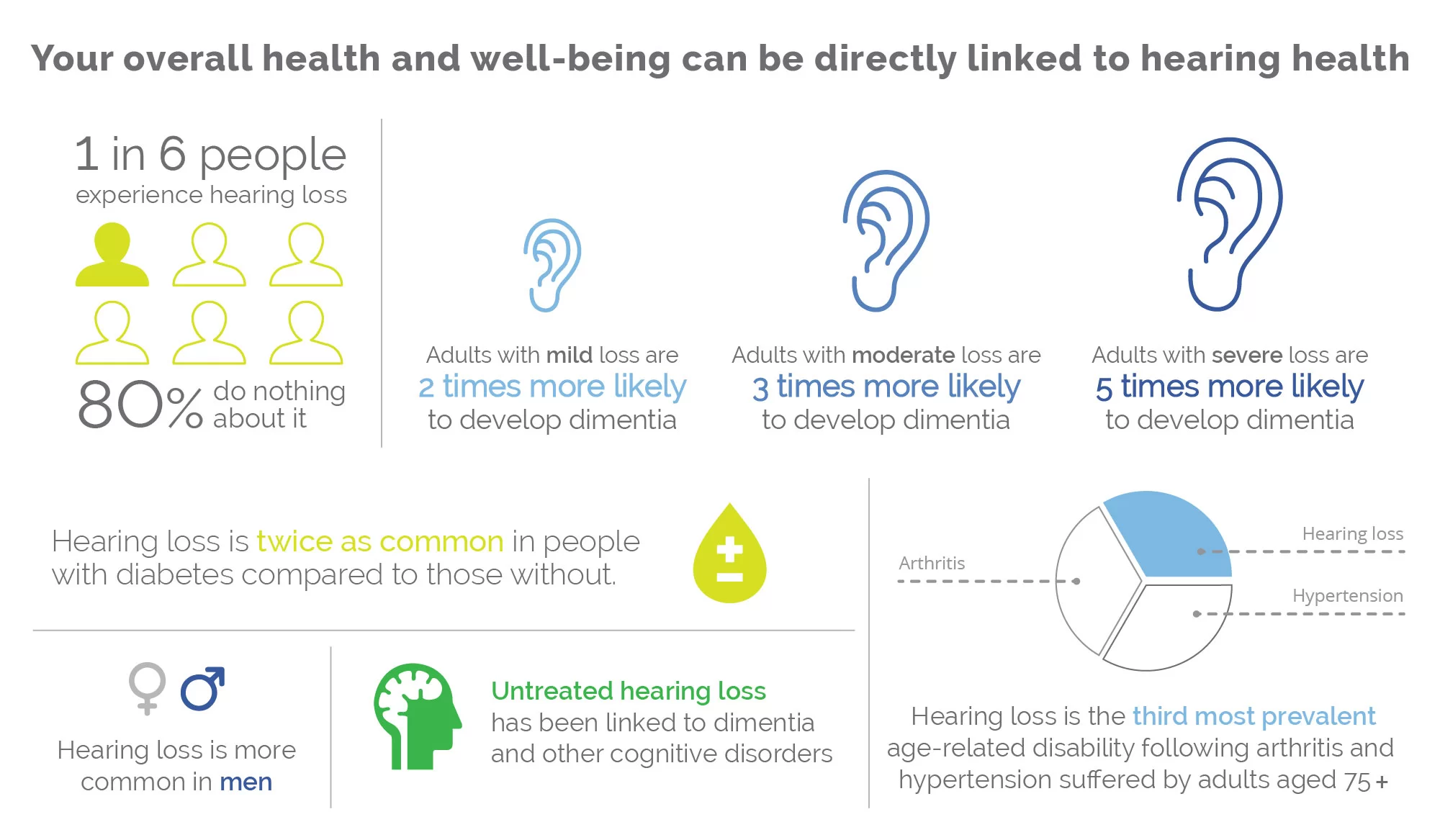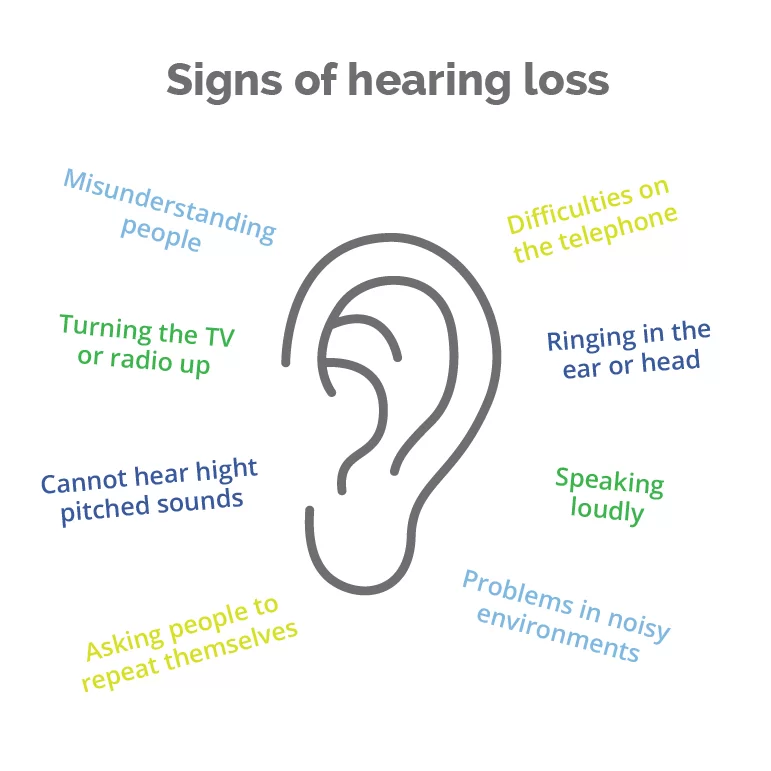
Hearing loss is a common condition which affects one in every six Australians. People may feel embarrassed or self-conscious about their hearing loss, or just think that it’s a natural part of ageing. However, our understanding of how hearing works and the constant advances in hearing devices means that most types of hearing loss can be successfully treated, leading to significant hearing improvement in the majority of cases.
Symptoms of hearing loss
Recognising a hearing loss in yourself, or someone you know, is the first step toward improving the situation. Symptoms include:
- Difficulty hearing high-pitched sounds, such as women’s and children’s voices, as well as bird songs
- Difficulty hearing at public gatherings, such as concert halls, theatres, movies and churches, where sound sources are far from the listener
- Difficulty understanding conversations within a group of people, in noisy environments or on the telephone
Because hearing loss can develop over several years, most people are not aware of the extent of their loss until family or friends bring it to their attention. Even then, they may deny that they have difficulty with hearing. People with mild hearing loss often use the following tactics to cope with their situation:
- Turning up the volume on the television or radio to a level that disturbs others
- Consistently asking people to repeat themselves, or to speak louder
- Avoiding social situations such as restaurants or parties, where background noise can make it difficult to hear conversations
- Turning the head to one side (the ‘good ear’) while listening
Although these habits can help the individual cope with hearing loss in some situations, their hearing loss is most likely depriving them of enjoying and understanding a wide range of sounds. Eventually, as the hearing loss progresses, these techniques will fail to provide adequate hearing assistance.
Leading causes of hearing loss
In adults:
- Excessive noise exposure
- Age-related hearing loss
- Family history of hearing loss
- Vascular and circulatory disorders
- Growths within the ear
In children:
- Middle ear problems (before the age of three, 83% of Australian children will suffer from acute otitis media or ‘glue ear’)
- Abnormalities in the growth of the skull
- Family history of hearing loss
- Congenital infections
- Complications at birth
Other causes of hearing loss:
- Infections, such as bacterial meningitis
- Traumatic injuries to the head
- Ototoxic (toxic to the ear) medications, such as some chemotherapy agents
- Infectious diseases, such as mumps and measles

